
Back in 2011, 20th Century Fox surprised film fans the world over with their prequel/reboot of the Planet Of The Apes franchises with Rise Of The Planet Of The Apes and excelled themselves with sequel Dawn Of The Planet Of The Apes. Expectations were high for the concluding part of the trilogy: War For The Planet Of The Apes.
After the events of Dawn Of The Planet Of The Apes, a group of elite soldiers led by a man known as The Colonel (Woody Harrelson) are searching for Caesar (Andy Serkis) in the forest near San Francisco. After Caesar’s loved ones are killed by The Colonel, the leader of the apes goes on a mission of vengeance to find and kill the military commander, against the advice of his trusted friends.
The original Planet Of The Apes was a seminal sci-fi film of the 1960s; it focused on social commentary and satire, boasting one of the most famous twists in cinematic history. Rise Of The Planet Of The Apes was a rarity in modern blockbuster filmmaking, focusing on characters and ideas more than action, and was an example of how special effects could enhance storytelling and not just provide spectacle.
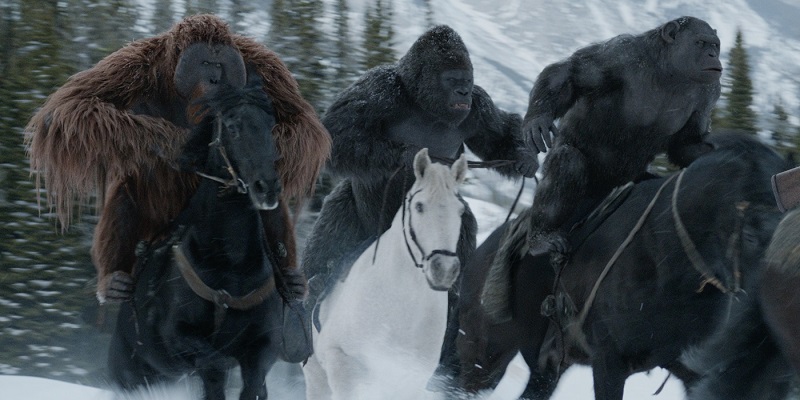
Although War For The Planet Of The Apes was advertised as action-heavy, the marketing campaign was misleading; the first half was like Heart Of Darkness (the basis for Apocalypse Now), and the second is a prisoner-of-war film. The action was saved for the beginning and end, and there isn’t the fun ridiculousness of watching apes firing machine guns whilst riding horses.
Even the film’s title is a little misleading: the war between humans and apes is front-loaded when the apes defend against an army assault and the army raid Caesar’s hideout. The real enemy for The Colonel is another faction of humanity, and most of Caesar’s apes want to avoid war and find sanctuary.
War For The Planet Of The Apes is a character-driven film which has been one of the strengths of the rebooted series. The central theme of this film is Caesar’s desire for revenge and how it would bring folly to the apes. Caesar suffers from dreams featuring his old rival, Koba (Toby Kebbell), and the quest may lead Caesar to become just like the great traitor.
Caesar’s actions are contrasted with his lieutenants Maurice (Karin Konoval) and Rocket (Terry Notary). Maurice has compassion for and ends up looking after a human child (Amiah Miller) who has lost the ability to speak, whilst Rocket has experienced the same tragedy as Caesar and tries to advise Caesar on how to cope with it.
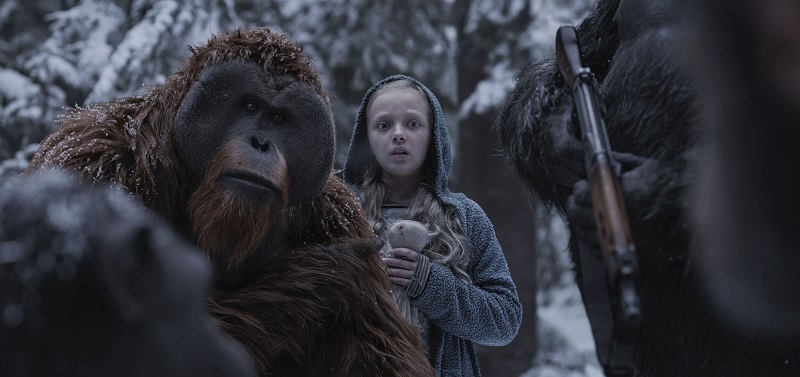
A new member of the group is Bad Ape (Steve Zahn) – a chimpanzee who escaped from a zoo and lived alone for years. He speaks English but doesn’t understand sign language – which most of Caesar’s apes use – and shows that more intelligent apes could be inhabiting the world. Zahn also added a little humour in what is a sombre film.
Throughout the Planet Of The Apes franchise, there has been some sort of religious theme. The original film took satirical swipes against the religious Right: Beneath The Planet Of The Apes showed a group of humans worshiping a nuclear bomb, and in the 2001 Tim Burton remake, the lines between historical fact and religious mythology were blurred.
The religious subtext continued with the reboot: in Rise Of The Planet Of The Apes, Caesar is essentially the Adam of his species. War For The Planet Of The Apes is even more overt with these themes, showing Caesar becoming both Moses and Jesus when he stands against the enslavement of the apes and acts as a martyr to protect them.
The prisoner-of-war setting in the second half of the film makes War For The Planet Of The Apes turn into a sci-fi version of films like The Great Escape; it’s a battle of wits between Caesar and the Colonel as the apes formulate an escape plan.
Although War For The Planet Of The Apes is a sequel, it works as a standalone. There is a text crawl to get newcomers up to speed, and early on there is expository dialogue to explain some of the changes in the intervening years – like why Koba’s followers have joined the humans. However, considering Koba wanted to go to war with humans for the abuse he suffered, wouldn’t his followers be less likely to join the army?
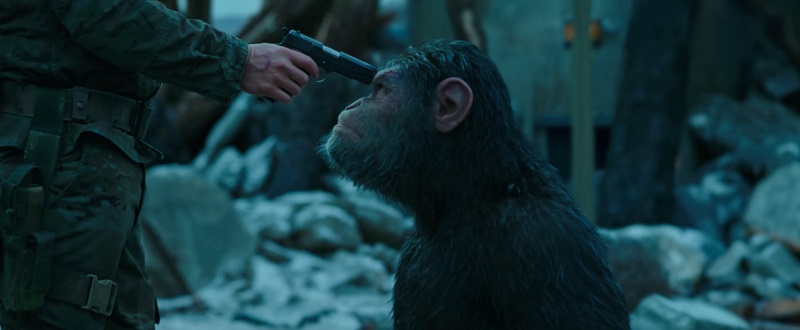
War For The Planet Of The Apes also shares some similarities to another major Fox release: Logan. Both have a slightly Western feel as Caesar and his companions go into the wilderness whilst Caesar seeks revenge and searches for an elusive location. Additionally, the apes have to take care of a mute child. Logan and War For The Planet Of The Apes have a bleak tone: but Logan at least had the catharsis of its violence and peppered its action.
War For The Planet Of The Apes aims to converge the reboot series with the original series. Rise Of The Planet Of The Apes did have references and callbacks, but War is much more overt. The most obvious story element is that humanity is hit by a second wave of the Simian Flu – this time turning sufferers mute and more primitive. Fans of the original series will appreciate the efforts of the reboot series.
War For The Planet Of The Apes is the longest film in the trilogy. This leads it to be incredibly plodding. The film is meant to be subdued, but it’s not enough to be deep and meaningful. Despite the mission Caesar is on, the pacing of the war doesn’t make it seem as urgent as it should be.
To give it credit, the technical elements are second-to-none, and the special effects team will hopefully be a contender for the Academy Award. The previous films were not, which is a great cinematic crime, but hopefully War For The Planet Of The Apes could do a Lord of the Rings: Return of the King where the final film got rewarded for the work of the whole trilogy. There is a great amount of detail on the apes that made it look so lifelike, photo-realistic even.
War For The Planet Of The Apes has been praised as the best of the rebooted Planet Of The Apes series, and some audiences will appreciate the bleaker tone compared to other blockbusters, but it’s been tooover-hyped.
Read a differing review for War For The Planet Of The Apes by clicking here.
#Peace.Love.WarForThePlanetOfTheApes




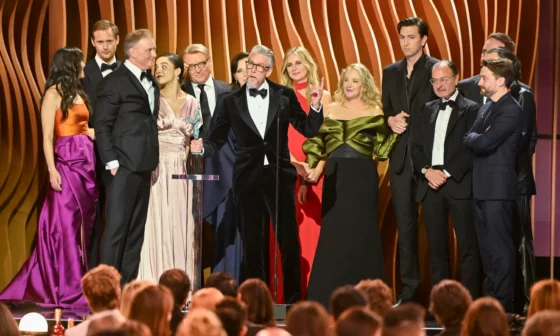
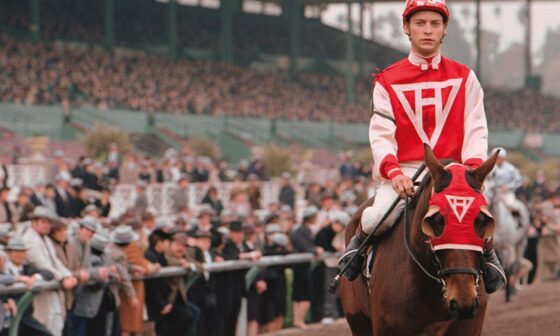

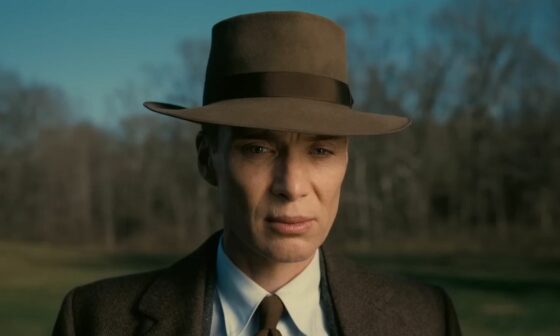

1 comment